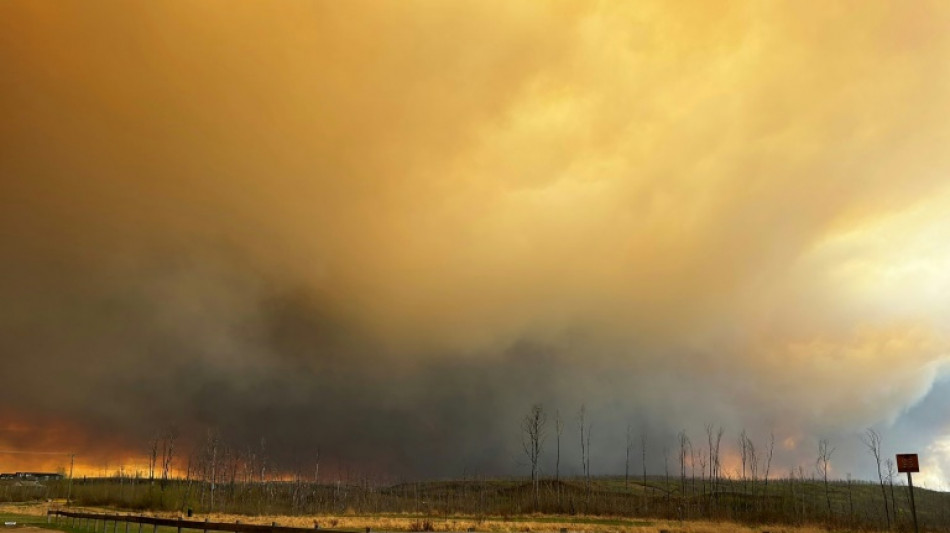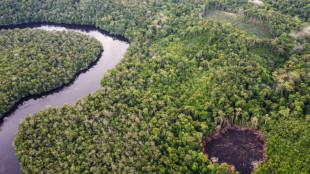

Weather eases Canadian oil sands city wildfire menace
Rain and cooler weather have halted the advance of a huge wildfire threatening the Canadian city of Fort McMurray in a major oil-producing region, officials said Thursday.
There was no immediate threat to oil sands mines but production of more than 2 million barrels per day could be in jeopardy if the situation worsens.
Meanwhile, greenhouse emissions from the fires across Western Canada have hit a new high.
Alberta Wildfire spokeswoman Josee St-Onge told a news conference a fire southwest of Fort McMurray was still considered out of control, after scorching almost 21,000 hectares (52,000 acres) of forest.
But it has not gotten any closer to the city since Wednesday when it was 4.5 kilometers (2.8 miles) away.
"The wildfire was much less active thanks to cooler temperature and reduced winds," St-Onge said, "providing a good window for firefighters to make progress" battling the blaze.
Of course, she added, the threat has not dissipated. "It will take time and hard work to put out a wildfire of this size," possibly months, she said.
A smokey haze continued to linger over the city on Thursday. Storm clouds rolled in, further darkening the skies as streets remained mostly empty.
"The next few days will be very important," mayor Sandy Bowman said.
If all goes well, more than 6,000 residents who were ordered evacuated last weekend may be allowed to return home as early as next Tuesday.
Rystad Energy said in a research note that oil companies including Suncor, Canadian Natural Resources and Syncrude have not yet indicated any impact to their operations near Fort McMurray.
But it estimated that output of more than 2.1 million barrels per day "could be at risk should conditions materially worsen."
Some, such as Imperial Oil, told AFP this week they have reduced staffing to essential levels.
In Manitoba, where 550 people remained under evacuation orders, federal Emergency Preparedness Minister Harjit Sajjan announced Can$256 million over five years for new equipment to fight wildland fires across Canada.
"We live in new reality today," he said. "While wildfires have always occurred across Canada, what is new is their frequency and their intensity."
According to the EU's Copernicus Climate Change Service, an early start to the wildfire season saw record carbon emissions from fires of 15 megatonnes in the first two weeks of May.
Emissions in British Columbia, where 123 fires are currently burning and 4,700 people remain under evacuation orders, have already surpassed twice the previous highest recorded in May 2023, it said in a statement.
T.Peeters--JdB



